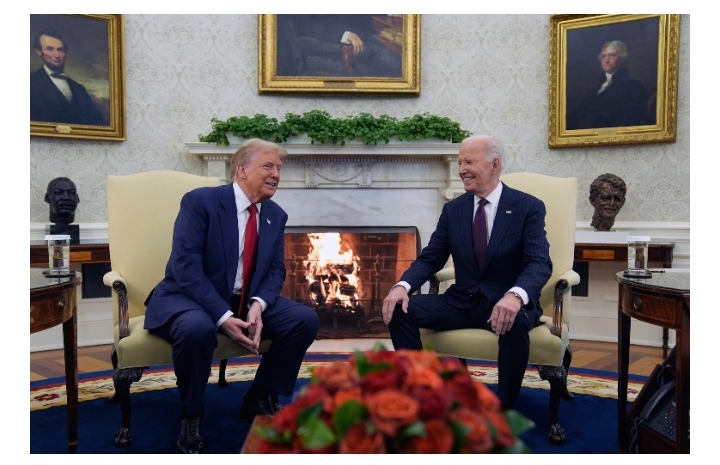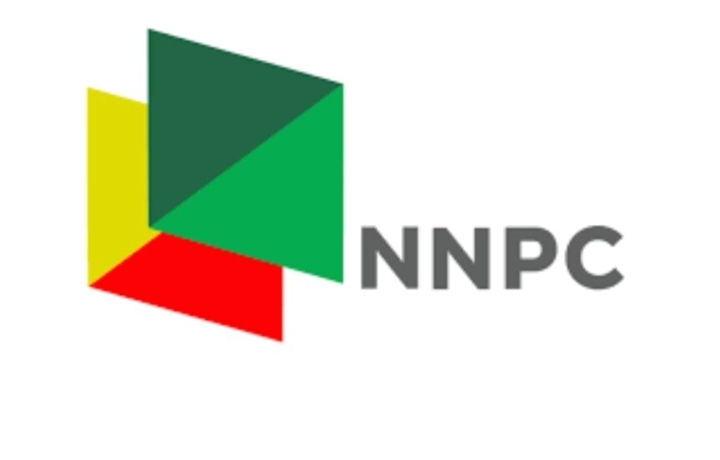Introductions To Fuel Scarcity In Nigeria
Fuel scarcity in Nigeria is a recurring issue that has significant economic, social, and political implications. Several factors contribute to the fuel scarcity situation in the country. Here are some of the key reasons behind fuel scarcity in Nigeria:
1. Insufficient Refining Capacity:
Nigeria, despite being a major oil producer, relies heavily on fuel imports due to its inadequate refining capacity. The country’s refineries are often poorly maintained and operate at below their capacity, resulting in a significant gap between domestic fuel demand and supply.
2. Poor Infrastructure:
Nigeria’s inadequate infrastructure, including pipelines, storage facilities, and distribution networks, contributes to fuel scarcity. Frequent pipeline vandalism, theft, and leaks disrupt the transportation and distribution of petroleum products, leading to shortages.
3. Inadequate Investment:
Insufficient investment in the oil and gas sector has hindered the development of new refineries and infrastructure. The lack of modernization and expansion in the refining industry exacerbates the fuel scarcity problem.
4. Corruption and Mismanagement:
Corruption and mismanagement within the oil sector have had a detrimental impact on Nigeria’s fuel supply. Issues such as diversion of petroleum products, illegal bunkering, and smuggling contribute to shortages and black market activities.
5. Foreign Exchange Constraints:
Fuel scarcity often arises from challenges in accessing foreign exchange for fuel importation. Nigeria heavily relies on importation due to the limited refining capacity, and fluctuations in foreign exchange rates can disrupt the procurement process.
6. Price Regulation:
The government’s regulation of fuel prices, particularly through subsidies, can lead to fuel scarcity. Subsidies often create an imbalance between the cost of importing fuel and the selling price, discouraging marketers and importers from supplying fuel.
7. Seasonal Demand and Hoarding:
Fuel scarcity tends to worsen during peak travel seasons or festive periods when there is increased demand for transportation fuel. Additionally, hoarding of fuel by individuals or groups seeking to exploit price differentials can contribute to shortages.
Addressing fuel scarcity in Nigeria requires a multifaceted approach that includes investments in refineries and infrastructure, improved regulation and transparency, effective anti-corruption measures, diversification of the energy sector, and the promotion of alternative energy sources.
Understanding The Causes Of Fuel Scarcity In Nigeria
Fuel scarcity in Nigeria can be attributed to several factors. Here are some of the key causes:
1. Insufficient Refining Capacity:
Nigeria, despite being a major oil-producing country, relies heavily on the importation of refined petroleum products due to inadequate domestic refining capacity. The country’s refineries, which are owned and operated by the Nigerian National Petroleum Corporation (NNPC), have been plagued by operational inefficiencies, underinvestment, and corruption. As a result, they often fail to meet the domestic demand for petroleum products, leading to shortages.
2. Pipeline Vandalism and Theft:
Nigeria has a significant problem with pipeline vandalism and oil theft. Criminal syndicates and militant groups often target oil pipelines to siphon off crude oil and refined products, which causes disruptions in the supply chain. These activities not only result in fuel scarcity but also lead to environmental damage and revenue losses for the government.
3. Inadequate Infrastructure:
Nigeria’s infrastructure for the importation, storage, and distribution of petroleum products is inadequate. The country relies heavily on a network of pipelines, depots, and tank farms, but many of these facilities are outdated, poorly maintained, or insufficient in capacity. This hampers the efficient distribution of fuel, leading to bottlenecks and shortages.
4. Foreign Exchange Challenges:
Nigeria’s economy heavily depends on oil exports, and fluctuations in global oil prices can impact the country’s foreign exchange reserves. When the value of the Nigerian currency (Naira) declines against major currencies like the US dollar, it becomes more expensive to import refined petroleum products. This can lead to reduced imports and, consequently, fuel scarcity.
5. Inefficient Pricing Mechanism:
The pricing of petroleum products in Nigeria is heavily regulated by the government. Fuel subsidies are often provided to keep prices artificially low, which strains government finances. In the past, the removal of subsidies has led to protests and social unrest. The pricing mechanism and subsidy system can create market distortions and supply chain issues, contributing to fuel scarcity.
6. Bureaucratic Challenges:
Administrative bottlenecks and corruption within the supply chain can contribute to fuel scarcity. Delays in the importation, clearance, and distribution of petroleum products due to bureaucratic inefficiencies can disrupt the regular supply, leading to shortages.
Addressing these causes requires a comprehensive approach, including investment in domestic refining capacity, improved security measures to combat pipeline vandalism, infrastructure development, currency stabilization measures, and a more efficient and transparent pricing mechanism. Efforts to diversify the Nigerian economy away from its heavy reliance on oil can also help reduce the impact of fuel scarcity in the long run.
International Cooperation And Support In Resolving Fuel Scarcity In Nigeria
Resolving fuel scarcity in Nigeria will require a combination of domestic efforts and international cooperation and support. Here are some key areas where international cooperation can contribute to resolving the issue:
1. Technical Expertise and Knowledge Sharing:
International organizations and developed countries can provide technical expertise and knowledge sharing to enhance Nigeria’s refining capacity and improve the efficiency of its oil and gas sector. This can involve sharing best practices, providing training programs, and facilitating technology transfers to upgrade infrastructure and operational processes.
2. Investment and Financing:
International financial institutions, such as the World Bank, African Development Bank, and other bilateral and multilateral partners, can support Nigeria in securing investments and financing for infrastructure development, including refineries, storage facilities, and distribution networks. This can help enhance the country’s capacity to produce and distribute fuel, reducing scarcity.
3. Energy Diversification:
Collaborative efforts can focus on diversifying Nigeria’s energy mix by promoting renewable energy sources, such as solar, wind, and hydroelectric power. This can reduce the country’s reliance on fossil fuels for power generation and free up more petroleum resources for refining into fuel products.
4. Policy and Regulatory Support:
International partners can provide assistance in developing and implementing effective policies and regulations to address fuel scarcity. This can include supporting the establishment of transparent and efficient regulatory frameworks, promoting market competition, and implementing measures to curb corruption and smuggling activities that contribute to scarcity.
5. Emergency Response Mechanisms:
In times of crisis or acute fuel shortages, international partners can contribute by providing emergency fuel supplies, logistics support, and technical assistance to help manage the situation. This can involve coordination with relevant agencies and organizations to ensure timely and effective responses.
6. Regional Cooperation:
Nigeria can collaborate with neighboring countries and regional organizations to enhance energy cooperation and regional integration. This can involve developing regional pipelines, refining infrastructure, and harmonizing regulations to facilitate the free flow of petroleum products across borders, reducing supply disruptions and scarcity.
7. Sustainable Development Initiatives:
International cooperation can support Nigeria’s efforts to promote sustainable development in the energy sector. This can include initiatives to improve energy efficiency, promote clean technologies, and reduce greenhouse gas emissions. By adopting sustainable practices, Nigeria can optimize its fuel resources and reduce the impact of scarcity on its population.
It is important to note that resolving fuel scarcity in Nigeria is a complex issue that requires a comprehensive approach involving multiple stakeholders, including the Nigerian government, domestic oil and gas industry, and international partners. Effective coordination, long-term planning, and sustained efforts are necessary to address the root causes of the problem and ensure a reliable and sustainable fuel supply for the country.
Case Studies And Success Stories Of Other Countries
Certainly! Here are a few case studies and success stories from different countries:
1. South Korea’s Education System:
South Korea has been recognized for its impressive education system. The country’s focus on education and strong emphasis on academic achievement has led to high literacy rates and outstanding performance in international assessments such as the Program for International Student Assessment (PISA).
2. Germany’s Renewable Energy Transition:
Germany has made significant strides in transitioning to renewable energy sources. Through its Energiewende (energy transition) initiative, the country has implemented policies and incentives to promote the use of renewable energy, resulting in a substantial increase in the share of renewable energy in its electricity generation.
3. Rwanda’s Economic Development:
Rwanda has experienced remarkable economic growth and development since the devastating genocide in 1994. The country has focused on promoting peace, stability, and good governance while implementing policies to attract foreign investment. As a result, Rwanda has achieved impressive economic growth rates and has become a regional technology and innovation hub.
4. Singapore’s Urban Planning:
Singapore is renowned for its efficient urban planning and sustainable development. The country has implemented comprehensive urban planning strategies that prioritize green spaces, public transportation, and sustainable architecture. Singapore’s planning has resulted in a well-connected city-state with a high quality of life.
5. Costa Rica’s Environmental Conservation:
Costa Rica has gained global recognition for its commitment to environmental conservation. The country has implemented policies to protect its rich biodiversity, promote ecotourism, and achieve carbon neutrality. Costa Rica aims to be the world’s first carbon-neutral country by 2050.
6. Finland’s Education System:
Finland’s education system is often hailed as one of the best in the world. It emphasizes equality, student well-being, and highly qualified teachers. Finland’s approach to education focuses on fostering critical thinking, creativity, and problem-solving skills rather than relying heavily on standardized testing.
7. United Arab Emirates’ Dubai City:
Dubai, part of the United Arab Emirates, has undergone a remarkable transformation in recent decades. The city has invested heavily in infrastructure, tourism, and real estate development, becoming a global business and leisure destination. Dubai is known for its iconic landmarks, such as the Burj Khalifa and Palm Jumeirah.
These are just a few examples of successful initiatives and achievements from different countries. Each case study offers unique insights and lessons that can inspire and inform efforts in various domains.






